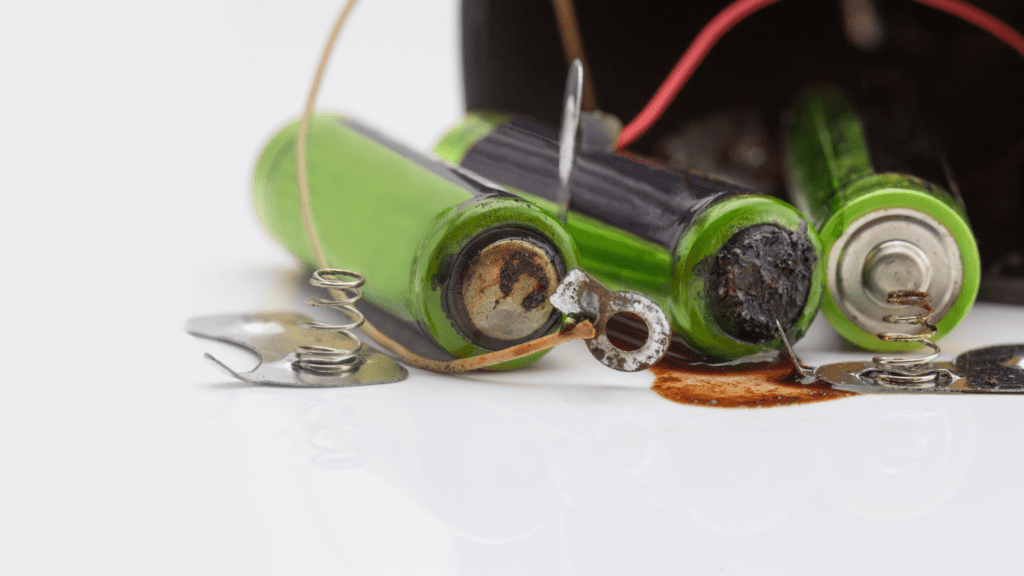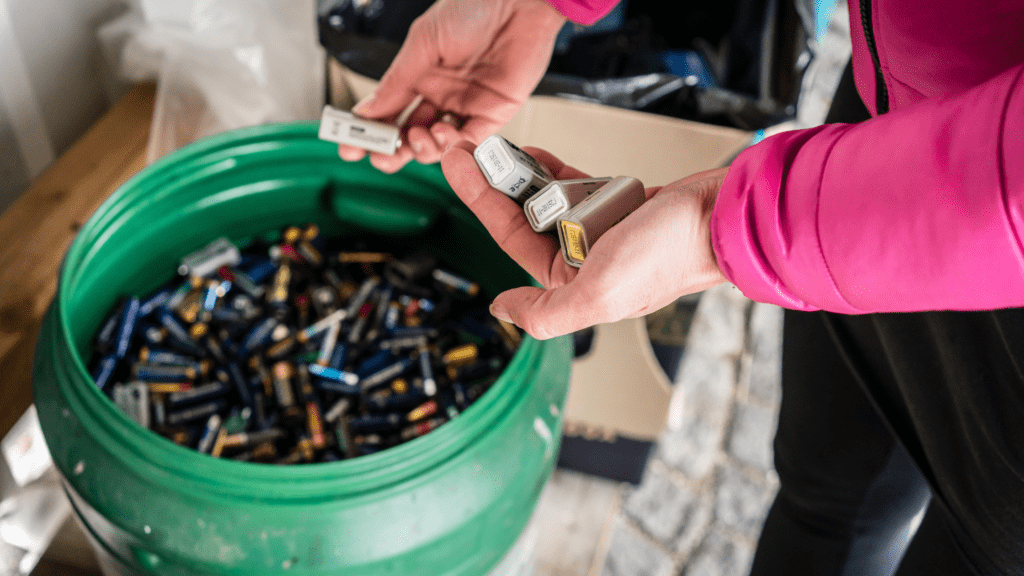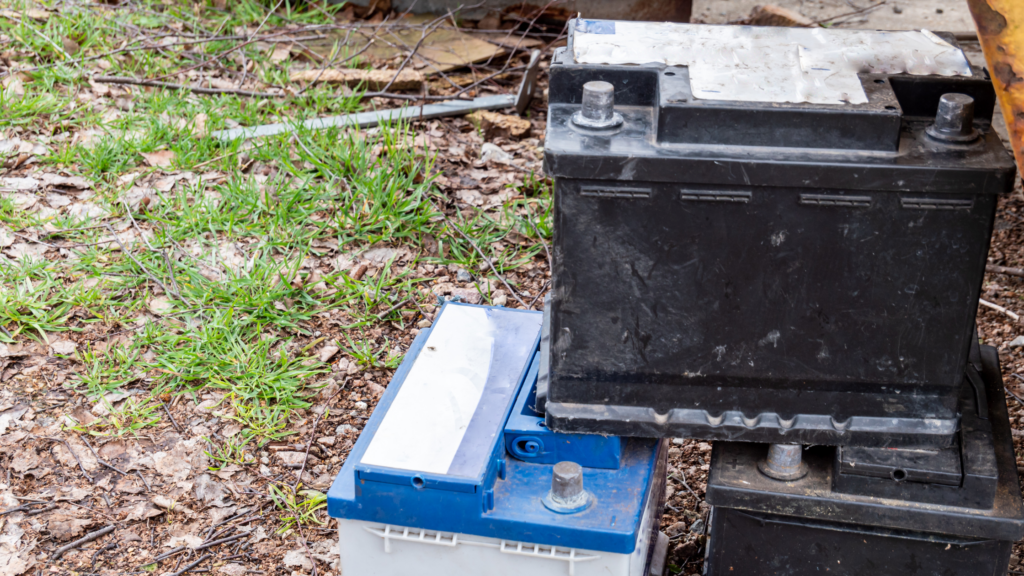Batteries Do Not Belong in Curbside Bins
Batteries and products that contain batteries cannot be disposed of in trash or recycling bins. Batteries that enter the waste stream pose a significant safety threat because they are responsible for rising occurrences of fires and environmental contamination.
Batteries are considered as hazardous waste and/or household hazardous waste under the category of universal wastes in California because of the materials they are made from. Acids, lead, nickel, lithium and mercury found in batteries are dangerous and toxic. When batteries are subjected to the heat, pressure, and machinery of a garbage or recycling truck or become punctured or pierced by waste sorting machinery, they can spark and ignite a fire.
Additionally, the dangerous and toxic components of batteries flow into the environment when not disposed of properly. This not only contaminates the soil and water systems, but have the potential to affect our health and well-being through accumulation in wildlife and the food we eat.

Types of Batteries
AAA, AA, C, D, button cell, 9-volt, rechargeable batteries, single batteries, car batteries, motorcycle batteries, scooter batteries, e-cigarette and vape batteries.
Recycling Batteries
Battery Recycling is becoming increasingly more safe, convenient and accessible.
Here’s where you can recycle batteries in San Diego:
- Libraries: 14 county libraries in San Diego accept standard alkaline batteries, drop them off in the drop-off bin inside
- O’Reilly’s Auto Parts Store: Most O’Reilly’s recycle household batteries as well as lead acid automotive batteries. Remember to call before you go to make sure your local O’Reilly’s are accepting batteries for recycling
- Household Hazardous Waste Facilities: Hazardous waste facilities accept all types of batteries. Always bring damaged batteries to HHW facilities. Visit WasteFreeSD.org to find out which facility you can go to
- Cirba Solutions: An easy and convenient way to dispose of all types of batteries (excluding automotive batteries) – purchase a box, fill the box, ship the box. The company then uses a diverse array of technologies to ensure each battery component is recovered in the most environmentally sound way possible.
Visit WasteFreeSD.org to check out more locations for battery disposal and recycling.

Battery Storage
- Store household batteries in their original packaging so they are out of contact with other batteries.
- Make sure the batteries are stored with all the positive ends facing the same direction.
- Avoid storing batteries with metal objects because contact can cause batteries to short circuit and lead to leakage.
- Do not mix damaged batteries with other batteries. This again could result in short circuiting and cause fires or explosions.
- If batteries are leaking, handle them with care by wearing gloves, then place them in a clear plastic bag to be transported to your local hazardous waste collection facility.
- For extra safety, place the bag in non-flammable material such as sand or cat litter.








